Cormac McCarthy: An American Philosophy
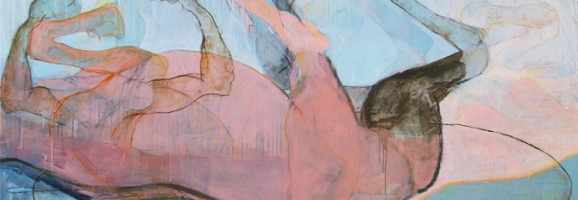
One of the more preeminent and influential American novelists, screenwriters, and playwrights of the 20th century, Cormac McCarthy has presented a unique and stylized version of American life. His view of an American-centric philosophy is based around three main characteristics: violence, existing outside of the law, and alienation. Living in the oppressive and harsh environments of the American frontier and undeveloped parts of the country, McCarthy presents violence as a necessary means of survival. Law enforcement is disparaged in McCarthy’s works as those who are supposed to uphold the law either turn against it for their own benefits or have a tendency to fail. Alienation and solitude are also seen throughout McCarthy’s philosophy where living away from society is the only way to grow and evolve as a person, and often McCarthy’s characters have the most development when they are at their loneliest. These three ideas are key to McCarthy’s view of understanding what it means to be the free American.
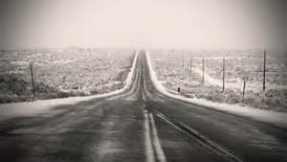
An overt and prominent theme of McCarthy’s work is extreme and excessive violence, either performed by or enacted upon the novel’s main protagonist. Each of his novels features moments of physically violent acts, usually related to a character’s self-preservation instincts. In The Road, McCarthy’s 2006 novel about a father and son travelling across post-apocalyptic America, the unnamed protagonists must at times resort to violence in order to survive. At one point in the novel, the nomadic pair encounter a stranger on the road, who encourages them to join his group. The father refuses, and the boy is held hostage by the stranger at knifepoint. The father tries to reason with the stranger stating, “You think I won’t kill you but you’re wrong. But what I’d rather do is take you up this road a mile or so and then turn you loose…You won’t find us.” When the stranger refuses, in order to save his son, the father must use one of his precious few bullets and kills the stranger.[1] The actions of both the stranger and the father show that McCarthy places preservation at the head of all human instincts. In a world where all people should be working together to survive and improve their chances of thriving when modern technology and conveniences are lost, McCarthy demonstrates how our animalistic instincts supersede our human rationale.
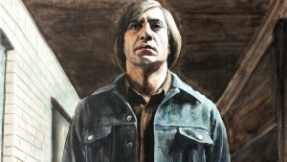
In what is considered the most popular adaptation of a McCarthy novel, the film No Country for Old Men highlights McCarthy’s penchant for violence through the character of bounty hunter Anton Chigurh. Chigurh, portrayed with an Oscar-winning performance by Spanish actor Javier Bardem, commits gratuitous acts of violence in his journey to recover $2.4 million stolen by Josh Brolin’s Llewelyn Moss following a botched drug deal. The film opens with two graphic violent deaths which show the two sides of Chigurh’s murderous nature. Within the first five minutes, Chigurh is arrested and brought to a sheriff’s office, where he proceeds to strangle the deputy to death with his handcuffs. The scene seems to go on far longer than it actually does, and the visage of Chigurh’s face as he chokes the life out of the struggling deputy shifts from animalistic insanity during the act to calm and calculating afterward. Then, after stealing the deputy’s car, he pulls over a car in the middle of an empty desert road and kills the driver with his captive bolt pistol. The cleanliness of the kill, as well as the precision and speed with which he kills, is on the opposite end of the spectrum from the deputy’s messy murder.
A true psychopath, Chigurh channels his inner Harvey Dent as he allows the flip of a coin to determine the fate of characters he comes across and deems “accountable.”[2] The ruthless hitman is a mix of controlled violence and unrelenting cruelty, with a warped sense of morals and unquestionable talent for tracking down his targets. It is interesting, however, that the most intense sequences of the film occur when simply the foreboding shadow of violence hangs over Chigurh. The hitman fills his gas tank at an isolated gas station and begins to pay, when the owner makes an off-hand comment about him coming from the direction of Dallas. This leads Chigurh to grill the man about what his reasoning is for paying attention to where Chigurh was coming from. The increasingly uncomfortable interrogation contains the underlying threat of violence, given Chigurh’s previous actions. He eventually becomes disgusted with the gas station owner’s story after he mentions that the store was originally owned by his wife’s father – “married into it” as Chigurh calls it – and flips a coin to determine the owner’s fate. He asks the owner how much he has ever lost in a coin toss, and to call the flip. After successfully calling heads, the tension dissipates and the owner noticeably exhales as Chigurh leaves the station. Chigurh’s violent tendencies is a reflection of the setting where McCarthy places No Country for Old Men, the crime-riddled and harsh environment of the American-Mexican border[3], thus making Chigurh the physical manifestation of the loss of American control and the difficult life that faces those who live in the desolate and lawless parts of America.
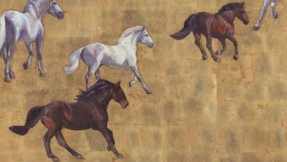
The corruption and failure of law enforcement is prevalent throughout McCarthy’s novels, as police officers and sheriffs are consistently portrayed as either ineffective against crime or crooked themselves. They do little to alleviate the problems and violence brought up in McCarthy’s works, and often times contribute to the hardships experienced by the protagonists. This is most noticeable in All the Pretty Horses, where protagonists John Grady, Lacey Rawlins, and Jimmy Blevins are taken prisoner by corrupt police officers after escaping from a group of rangers. After being brought to a decrepit Mexican prison, they are interrogated and beaten profusely. The boys attempt to flee but are captured and Blevins is executed. This disparaging view on law enforcement further reinforces his conceptions on American life and freedom. Law enforcement officers are either unrelentingly violent or self-described as “overwhelmed” as in No Country for Old Men. In order to embrace McCarthy’s American philosophy, one must avoid law enforcement at all costs, as it is those characters that exist not within the law but within their strong moral code which survive in a McCarthy novel.
Isolation and separation from civilization also play integral parts of McCarthy’s works. Most of the protagonists featured in McCarthy’s novels are in settings or situations where they are alone or cut off from any sort of organized society. Whether it is Child of God’s Lester Ballard, who purposefully lives away from social order and the daily life of the suburbs and cities, or The Kid in Blood Meridian, journeying along across the American West predominantly alone, McCarthy’s characters split off from what is considered the societal norm. The settings of McCarthy’s novels are also key in setting up the isolation and solitude felt by the protagonists. Many of his works take place prior to the instant-gratification and interconnected society that the modern world is accustomed to, “Essentially isolation and alienation are never complete because technology subverts the ability to remain alone.”[4] In order to fully establish the feelings of solidarity and loneliness, McCarthy places his characters in time periods where modern comforts cannot be afforded, or in remote locations devoid of human life and connectivity.
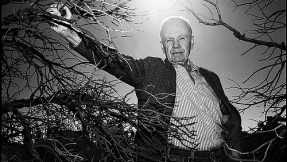
The character’s isolation and separation from civilization reflects McCarthy’s philosophy on American life and culture. In many of McCarthy’s works, the character development and action takes place in largely uninhabited areas of the American wastes. Whether it is rural Tennessee, the desolate Texas frontier, or a post-apocalyptic hellscape, having the characters cut off from society allows them to interact with one another without outside interference. In most cases, the main characters feel so isolated that they are even abandoned by God, completely removed from the rest of the universe except for the action occurring as a result of their own actions. This provides a look into McCarthy’s philosophy, that all men are in fact alone and responsible for their actions. Throughout the difficult life that comes from surviving on the fringes of human society, the only people who are saved are the ones who save themselves. McCarthy’s own self-imposed isolation is a testament to his commitment to his principles, cutting himself off from the world and living mainly in solitude.[5] He is a man who spends the majority of his time working with the Santa Fe Institute Research Center and writing. He rarely gives interviews and, like his characters, he avoids contact with the general public as much as possible. Those characters that look out to help others and try to coexist with others end up meeting an unpleasant fate. The father in The Road ends up dying from a respiratory infection and an arrow wound from protecting his son, and the aforementioned Jimmy Blevins in All the Pretty Horses is executed trying to save his friends.
McCarthy’s work stands as a monument to his interpretation of American life and the American’s struggle to find an equal balance of sanity and success. The violence that pervades McCarthy’s novels highlights the struggle of both American expansion and the life of those who survive on the American plains and frontiers. Whether it’s combatting with the harsh natural reality of living in poverty or against those who stand to benefit from another’s pain, violence is a natural part of the American story. McCarthy shows his distrust of the law and the legal process throughout his works, with the most successful characters living outside of the law and surviving by their own morals. These both tie in to his belief in the importance of isolation and solitude; freedom for McCarthy lies in alienating oneself from the rest of society. Living outside of society’s restrictions or simply in lawlessness provides the American people with their true freedom. His perception of what freedom and human nature are lays a sturdy foundation for a new school of thought on American philosophy, and he forces his readers to stand back and analyze what it truly means to be free and alive.
Works Cited
[1] McCarthy, Cormac. The Road (Vintage Books, Random House Inc., 2006), 65.
[2] No Country for Old Men, directed by Joel Coen and Ethan Coen (2007, Santa Monica, CA; Miramax Films; 2008), DVD.
[3] King, Lynnea Chapman. No Country for Old Men: From Novel to Film (Scarecrow Press Publishing, 2009) Plymouth, England. 63
[4] Bloom, Harold, ed. Bloom’s Modern Critical Views: Cormac McCarthy (Infobase Publishing, 2009) New York, New York. 42
[5] Greenwood, Willard P. Reading Cormac McCarthy (ABC-CLIO, LLC, 2009) Santa Barbara, California. 1
What do you think? Leave a comment.











McCarthy is that rare beast, a living writer who is seen as being above criticism. Personally, I found The Road almost literally unreadable: noun phrases dressed up as sentences in a manner that suggested ignorance of English grammar rather than a deliberate playing with the rules; a clotted-cream love affair with assonance and alliteration; a fondness for what I think of as abstract or stative adjectives. I suspect that in 50 years, his novels will be held in the same high regard currently afforded the fictition of Richard Aldington, say.
Yes if there’s one thing about his work that’s off-putting it’s the writing style. He has a tendency to use sentence fragments and run-ons without following any sort of grammatical rule, and it’s not just The Road. When I started writing this I read Blood Meridian for the first time and it’s just full of fragmented sentences, which is why I removed two pages of writing when bringing up style. It’s so jarring when compared to the rest of his work that it sent me off on this massive tangent about how his style could possibly relate to his overall message and philosophy.
I absolutely hate Cormac McCarthy’s style of writing. No proper paragraphs or punctuation, no speech marks. His stories may be great but his style is horrible.
‘Once there were brook trout in the streams in the mountains. You could see them standing in the amber current where the white edges of their fins wimpled softly in the flow. They smelled of moss in your hand. Polished and muscular and torsional. On their backs were vermiculate patterns that were maps of the world in its becoming. Maps and mazes. Of a thing which could not be put back. Not be made right again. In the deep glens where they lived all things were older than man and they hummed of mystery.’
How is that horrible? Open a McCarthy novel on any page and youll find the most beautiful prose. The man is a master.
His style varies though. You cannot compare Sutree with The Road. the former is a jungle of denseness whereas the road is crystaline clear, more like Hemingway absorbed into the bible. And it is biblically apocalyptic. A truly fabulous book.
I would go further and suggest that Suttree, originally published in 1979, is the greatest post-war American novel yet penned. But, as you say, it is so different to The Road that it is as if it were written by another writer entirely. Suttree took McCarthy some 20 years to compose, and the time and effort are evident on every page.
Agree with you. Suttree is marvellous. I still think Blood Meridian slightly edges it as my favourite McCarthy, though.
Suttree was a challenge, but once you adapt to his style and start to become accustomed to the patterns of the language, the ebb and flow, and the poetic descriptions, it’s wonderful.
I’m not sure anything in recent years can touch Suttree. Possibly Underworld. Maybe Infinite Jest. And maybe American Pastoral. It’s also pretty remarkable that Cormac can write in such different styles – which (possibly suprisingly) isn’t true of many great writers.
You can see a thread in his writing style throughout his career. Although The Road is spare, certainly in comparison to the sustained brilliance of Suttree, the style can still be seen in his earliest works. There are passages of Outer Dark, for example, which could be dropped into The Road and no-one would notice. Outer Dark was published in 1968, his second published work (although he was writing Suttree simultaneously).
Great to see so much support for Suttree on here. It really should have been the selected McCarthy novel, rather than The Road. It is a work of genius.
One thing you have to say about McCarthy: he gives great quote. Every novel is stuffed with quotable passages.
I read The Road a while back on recommendation as great literature. It was like a poor man’s Stephen King story. King writes so much better in my opinion.
There is something to the lack of order and overt neglect of grammatical rules that really resonate with the persistently stark naturalistic themes and settings seen in McCarthy’s work. That in itself is a really rich topic for discussion on its own- I can definitely see why you decided to edit it out of this piece.
As for the actual contents, it’s really interesting how you likened the work to the idea of the “free American.” The lack of conventional morals in McCarthy’s work them lend themselves well in building this philosophy. The idea that his works are as markedly American in the ideas of lawlessness and internalization even in his intentionally non specific works, like “The Road.” Thanks for the article!
Well, the man knows how to write.
The Road is one of my favorite books. Its quicker read than forgotten. Everything seems so nice and lovely afterward in comparison.
–Audra
The Road is the only novel I’ve ever left on the train after dragging my way through it because it was just so indescribably awful that I didn’t want to carry it any more.
I’m currently reading The Gunslinger by Stephen King, which has the virtue of being a lot like The Road, only with:
1. punctuation
2. a plot
3. characters
This is all very well and good but where is the new material? Some time has passed since The Road was published. Six years in fact. I sincerely hope that some of that time has been devoted to creating a new book for his rabid fans (and yes I am one of them), rather than fiddling with other people’s work! In other words, Mr McCarthy, quit fannying about and get busy! Thank you!
I could go on for years about the genius. It’s taken until my junior year of college to fall in love with his style of prose–it drove me nuts in high school–but he has a very Woolfian way of crafting narrative voice to rise off the page and take on meaning beyond the written words. It’s the magic of good literature. I would love to see this article expanded to discuss Child of God (my personal favorite because of its southern themes) after the Franco film version comes out; judging by the trailer, it would add an interesting discussion to say the least.
I would really like to see Blood Meridian turned into a film. It might be horrifying, but that’s kind of the point he’s making. It’s meant to be horrifying but also interesting to the point where you can’t put the book down…or turn away from the screen. I think it would be perfect as the first NC-17 rated film to be mass distributed. It needs to happen.
Problems with McCarthy’s style and his disregard for grammar rules can be easily overlooked when his ability as a master storyteller. The author crafting Chigurh’s character as the embodiment of the Neitzchian superman bears addressing in an essay that labels his view point as philosophy. McCarthy’s commentary on morality and ethics is very difficult to clearly define as in Blood Meridian and The Road. The post-apocalyptic scene of The Road shows the human animal pushed to the limits where ethics and morality are blurred when considered in the light of survival. McCarthy explores these themes as well as any author.
Blood Meridian has been on my list for quite sometme, Roughfighter9. Have you read it?
I really appreciated your article -it afforded some perspective and insight before I begin to delve into this controversial author works.
A talented alternative country artist by the name of, Ben Nichols, formally of Lucero, created an album titled, Last Pale Light in the West, an album dedicated dedicated to the book- a head nod towards McCarthy’s skill as a crafter of tales:
http://www.npr.org/templates/story/story.php?storyId=99347082
I loved the Road and died upon watching the end of No Country For Old Men, I have put off far too long reading the book (even though the last paragraph, which killed me, is word for word the same). But interesting and inspiring analysis. Rekindled my interest in McCarthy. Thanks.